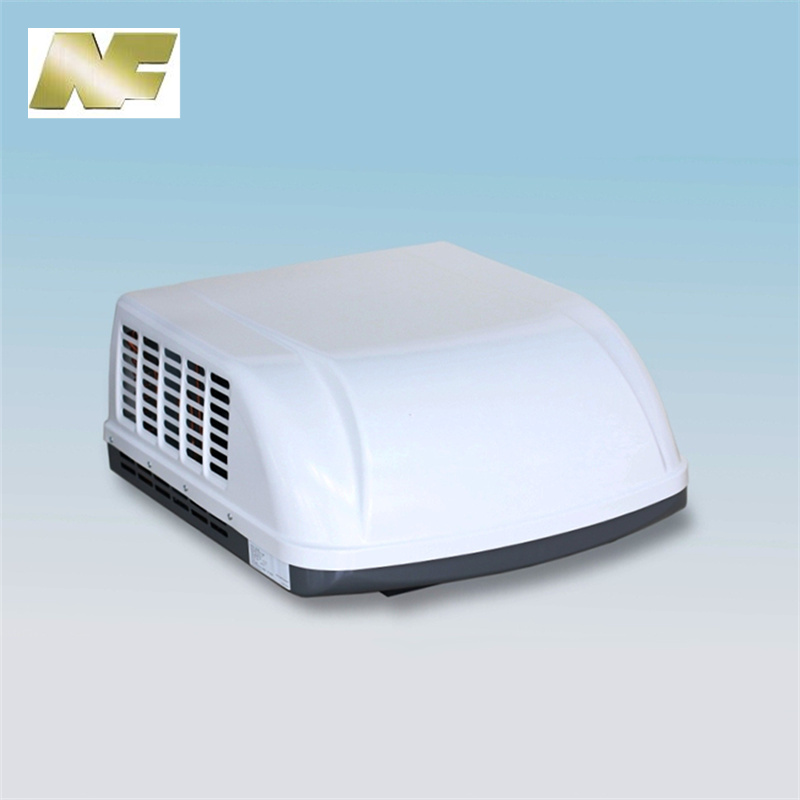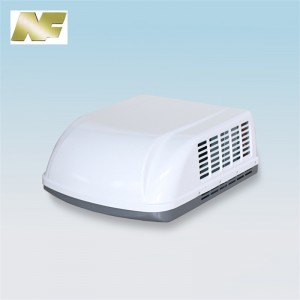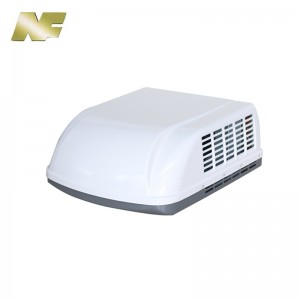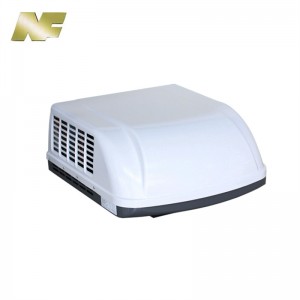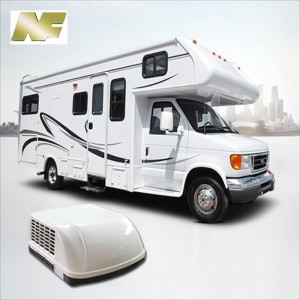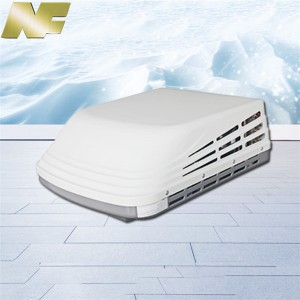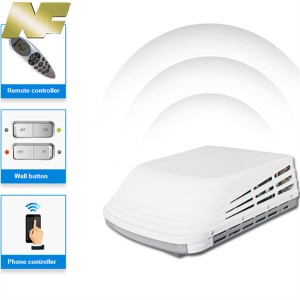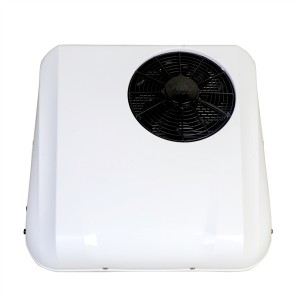NF RV Camper12000BTU 220V-240V Rooftop Air Conditioner
Description
Introduce:
When you start your camping adventure with your camper or RV, comfort is paramount. A reliable rooftop air conditioner is one of the essential components of creating a comfortable and enjoyable camping experience. Whether you own a van, camper, or RV, a roof-mounted air conditioner will help keep you cool and comfortable on hot summer days. In this blog post, we'll guide you through the process of choosing the perfect roof air conditioner for your camper.
Factors to consider:
1. Size and BTUs: Your vehicle size and interior space are important factors to consider before choosing a roof air conditioner. The BTU (British Thermal Unit) rating should be appropriate for the size of your camper. A higher BTU rating will effectively cool a larger space, while a smaller BTU rating may have difficulty cooling a larger area effectively.
2. Power consumption: It is very important to choose a roof air conditioner with a balance between performance and power consumption. Ideally, you want a unit that effectively cools your camper without draining too much power from the battery system. Look for energy-efficient models that provide the best cooling without compromising your power reserves.
3. Noise Level: Your camping experience should be peaceful and quiet. Consider opting for a quiet-running rooftop air conditioner to ensure you and your camping buddies get a good night's sleep.
4. Durability and Maintenance: Make sure your roof air conditioner is designed to withstand the rigors of camping and road trips. Look for models with durable construction and easy-to-maintain features like washable filters and accessible parts.
5. Installation and Compatibility: Check the air conditioning unit for compatibility with the camper roof size, existing ventilation system and electrical setup. Confirm that the installation process is straightforward and suitable for your DIY abilities, or if professional help is required.
In conclusion:
Investing in a reliable and efficient rooftop air conditioner for your camper is an excellent decision for a comfortable camping experience. When choosing the unit that best suits your needs, consider factors such as size, power consumption, noise levels, durability and compatibility. By making smart choices, you can keep your camper cool and comfortable no matter how hot it gets outside. Happy camping!
Technical Parameter
| Model | NFRT2-150 |
| Rated Cooling Capacity | 14000BTU |
| Power Supply | 220-240V/50Hz, 220V/60Hz, 115V/60Hz |
| Refrigerant | R410A |
| Compressor | vertical rotary type, LG or Rech |
| System | One motor + 2 fans |
| Inner frame material | EPS |
| Upper Unit Sizes | 890*760*335 mm |
| Net Weight | 39KG |
Air conditioner internal unit
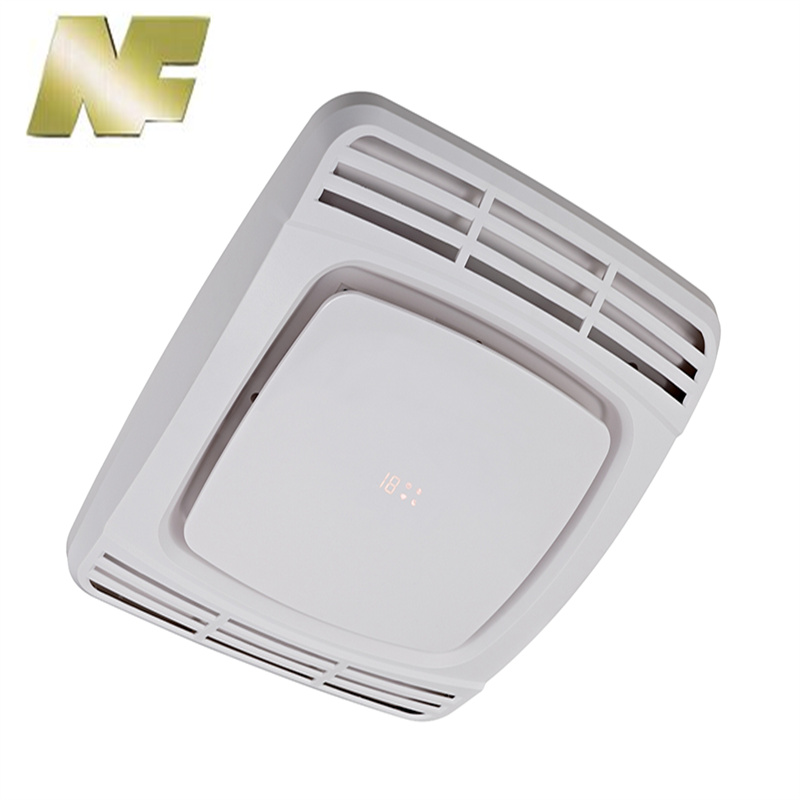

This is his internal machine and controller, the specific parameters are as follows:
| Model | NFACRG16 |
| Size | 540*490*72 mm |
| Net Weight | 4.0KG |
| Shipping way | Shipped together with Rooftop A/C |
Product Size
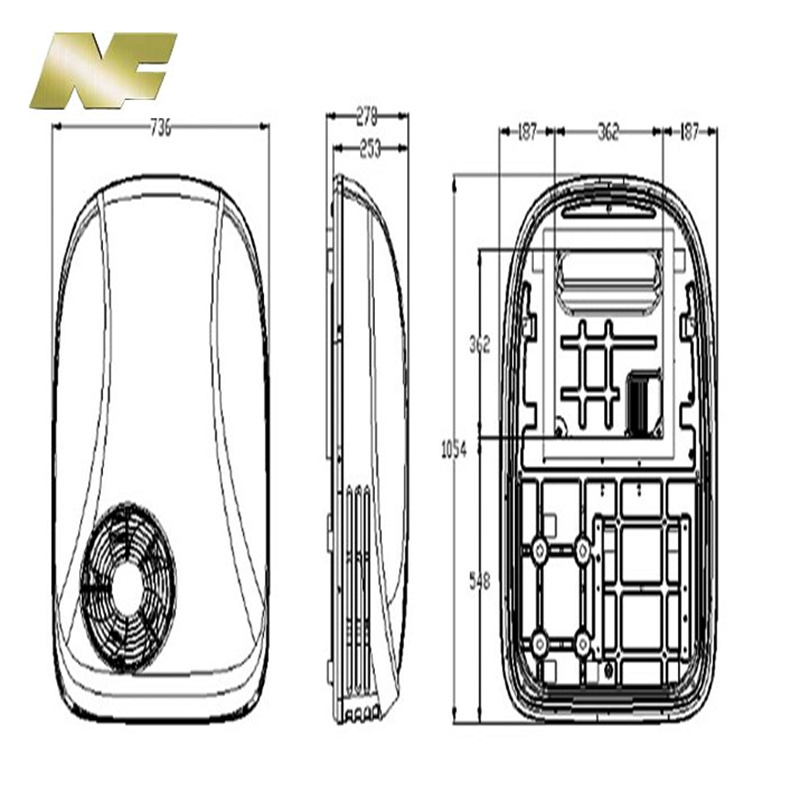
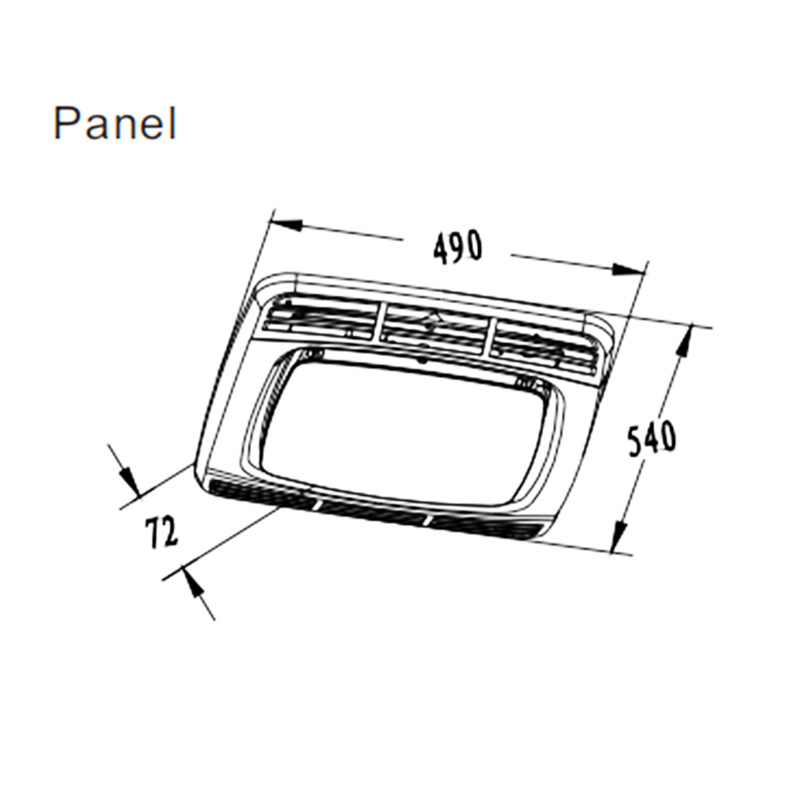
Advantage
NFRT2-150:
For 220V/50Hz,60Hz version, rated Heat Pump Capacity: 14500BTU or optional Heater 2000W
For 115V/60Hz version, optional Heater 1400W only Remote Controller and Wifi (Mobile Phone App) control, multi control of A/C and the separate Stove powerful cooling, stable operation, good noise level.
NFACRG16:
1.Electric Control with a Wall-pad controller, fitting both ducted and non ducted installation
2.Multi control of cooling, heater, heat pump and the separate Stove
3.With Fast Cooling function via opening the ceiling vent
FAQ
1. What is an RV roof air conditioner?
A motorhome roof air conditioner is a specialized cooling unit designed to be installed on the roof of a recreational vehicle (RV). It provides interior cooling by absorbing heat and blowing cool air into the living space.
2. How does an RV roof air conditioner work?
The unit uses a refrigeration cycle to cool the air. First, it draws hot air from inside the RV and sends it through the evaporator coils, which contain refrigerant. The refrigerant absorbs heat from the air, turning it into a gas. The compressor then pressurizes the gas, causing it to release heat outside the vehicle. Finally, the cooled air is blown back into the RV.
3. Can I install an RV roof air conditioner by myself?
Installation can be complex and requires knowledge of electrical and HVAC systems. It is recommended to hire a qualified technician or consult the manufacturer's instructions for professional installation.
4. What is the power consumption of the RV roof air conditioner?
Power consumption varies according to the size and efficiency of the device. Typically, they consume between 1,000 and 3,500 watts when operating. However, the overall electrical requirements of the RV and its generator capacity must be considered to avoid electrical problems.
5. Can I use a battery powered RV roof air conditioner?
Most RV roof air conditioners require 120-volt AC power to operate, usually provided by a generator or an electrical connection. Running on battery power alone is a challenge due to the high energy requirements. However, there are some dedicated models that can run on a limited basis on batteries.
6. How loud is the air conditioner on the roof of the RV?
The noise level of an RV roof air conditioner varies by model. Newer and more advanced devices often feature noise cancellation, making them quieter than older models. However, some noise is unavoidable due to the operation of the fans and compressors.
7. How long is the service life of the RV roof air conditioner?
The lifespan of an RV roof air conditioner depends on factors such as use, maintenance, and environmental conditions. On average, they last 7 to 15 years. Regular cleaning and maintenance will help extend its life.
8. Can the air conditioner on the roof of the RV also be heated?
Most RV roof air conditioners are designed for cooling purposes. However, some models can optionally be fitted with auxiliary heating elements or heat pumps to provide both cooling and heating.
9. Does the RV roof air conditioner need regular maintenance?
Yes, regular maintenance is essential to ensure optimum performance and extend the life of your equipment. Maintenance tasks may include cleaning or replacing filters, checking and cleaning coils, and checking for leaks or electrical problems. Refer to the manufacturer's instructions for specific maintenance guidelines.
10. Can the air conditioner on the roof of the RV be repaired if it breaks down?
In many cases, a malfunctioning RV roof air conditioner can be repaired by a qualified technician. However, the degree of repairability depends on the specific problem. If you encounter a problem, it is recommended to consult a professional to effectively diagnose and solve the fault.

